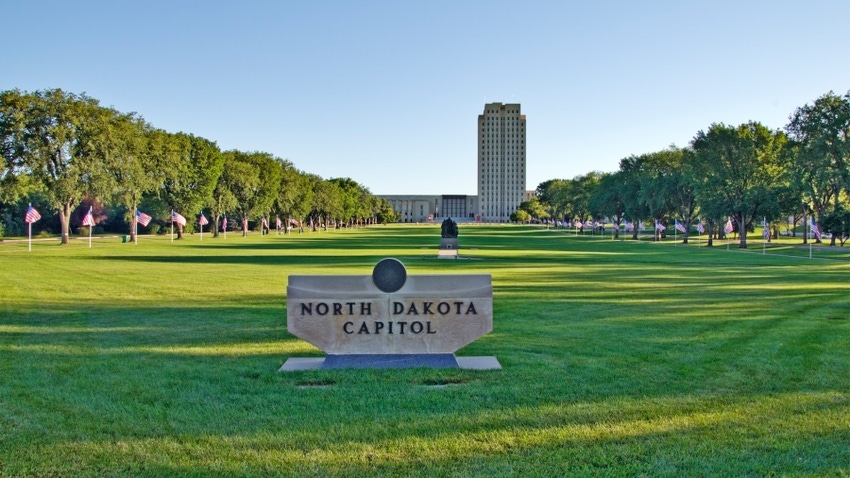
The North Dakota Legislature is still deciding the fate of the bill nicknamed “the North Dakota Animal Agriculture Farm Freedom Act.” Introduced by Rep. Paul Thomas, HB 1371 aims to create new sections for the state’s Century Code relating to requirements for authorized livestock farm corporations and livestock farm limited liability companies.
“House Bill 1371 would allow North Dakota livestock producers the practical option and opportunity to utilize better-suited and more practical business structures for their animal agriculture operations, permitting North Dakota animal agriculture to develop, grow and flourish,” says Dutch Bialke, policy adviser for the North Dakota Department of Agriculture.
The measure had a contentious hearing at the state Capitol in January. But many agriculture groups supported the bill since lawmakers added new language to Chapter 10-06.1 of the North Dakota Century Code.
Introducing ALFs to code
“Two new animal agriculture business structures in the first version called ‘authorized livestock farm corporations’ and ‘authorized livestock farm limited liability companies’ are modeled after family farm or ranch corporations,” Bialke explains.
Both ALF corporations and ALF LLCs are only for livestock backgrounding or finishing, poultry, dairy, and swine operations. With these changes, an ALF corporation would be limited to a maximum of 10 shareholders, of which at least 75% of the shares must be owned by individual producers or family farm corporations, he says.
“This means that no more than 25% of the total shares in an ALF corporation can be owned by partnerships or other ALFs,” he says. “Accordingly, this means agriculture producers would retain more than a two-third majority of the voting power of the ALF corporation.”
Requirements under the proposed ALF corporations and LLCs have acre maximums and income requirements. ALF farmland and ranchland acreage maximums are to be no more than 160 total acres, and shareholders or members are not allowed more than 640 total acres in any ALF.
Income requirements for ALFs would be a minimum 65% of gross income to come from livestock backgrounding or finishing, poultry and poultry products, milk and dairy products, and swine and swine products.
Just as in the first version of the bill, this amendment does not include aquaculture and greenhouse agriculture — when their facilities occupy 40 acres of farmland or less — under the chapter. “Beekeeping is added back into these proposed amendments — again instructing that beekeeping is not included in the definition of farming or ranching,” Bialke adds.
Major changes
A significant note in the proposed amendment would be changes to the anti-corporate farming chapter that currently prohibits surviving spouses from retaining their shares or member interests in either a family farm corporation or LLC.
“The proposed amendments rectify this unfairness by no longer forcing a surviving spouse to divest personal or inherited shares or interest upon the death of their spouse,” he explains. “It would properly permit a surviving spouse to retain their shares or interest if the surviving spouse so chooses.”
With 27 separate sections in the corporate farming chapter all interrelated, Bialke says the amendments would appropriately revise all affected provisions. “This will avoid conflict within the chapter and clearly distinguish ALFs from family farm corporations and LLCs.”
Both sides weigh in
While many farm organizations from the state are in favor of this bill, testimony heard support, opposition and neutrality from organizations and individuals.
The Dakota Resource Council, Independent Beef Association of North Dakota, North Dakota Native Vote, Audubon Dakota and three private individuals spoke in opposition, while North Dakota Farmers Union shared a neutral stance.
The North Dakota Ethanol Producers, North Dakota Corn Growers Association, North Dakota Department of Agriculture and North Dakota Soybean Growers Association all expressed support.
The bill is currently passed as amended in the senate and returned to the house. This is one of many bills left to be voted on before the end of the North Dakota legislative session in May. Find out more on this bill at the North Dakota Legislative Branch.
About the Author(s)
You May Also Like






